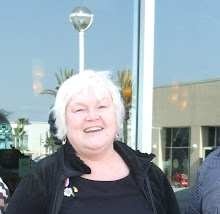Karl Knap said, "So the next question you ask is “What is the best, how do we know what makes sense or what doesn’t?” I suggest that lower level learning (lower cognitive load) requires a behaviorist approach (memorize, recognizing, labeling) as does the expectation of outcomes that must be measured. I then suggest that procedural and rule-based learning requires an emphasis on Cognitivism and finally, problem-solving, collaboration and creativity require a view of Constructivism.
"The issue many forget is that “learning” is not one thing…it is a multi-layered word that tends to get treated as if it were just one thing…and it’s not. It is multi-facetted and that is why developing new models for “learning” is so difficult…there are too many levels for one school of thought or one model to do it all."
I agree with him, even though I had not yet gotten around to thinking of the different approaches being appropriate for specific types of learning. This makes good sense to me. I also suspect that different instructors and different content areas may require different ___isms. Having a tool box of ideas on how to construct classes is probably more important than subscribing to one particular way of thinking in all instances. I think that might have been Bill Kerr's point that __isms are filters.
Maybe we will eventually get to the point that learners pick the instructor who fits best with the kind of learning that is most effective for the learners, not who knows the content area the best. I'll have to think about that for a while.
Wednesday, December 30, 2009
Subscribe to:
Post Comments (Atom)

Cynthia,
ReplyDeletewe both picked up on Bill Kerr's message--learning is not any one process that stands alone. Karl, also, had the same sentiments, and we must all face up to this fact. ~~~Group member~~~PENNY
Cynthia:
ReplyDeleteI also believe we should pick and choose ideas from _isms that are applicable to our educational environment. I believe the _isms will continue to exist and withstand criticism; nevertheless, there are some portions of the isms that will be beneficial to learners’ educational growth and success. Educators must implement trial and error tactics to determine which _isms are appropriate for addressing learners’ needs.
http://billkerr2.blogspot.com/2007/01/isms-as-filter-not-blinker.html
Valeria
Educational professionals who cater to one _ism and disregard others are placing learners at a great disadvantage. The _isms provide opportunity for educators to present learners with a variety of styles then choose styles which would contribute to each learners’ educational progress.
http://karlkapp.blogspot.com/2007/01/out-and-about-discussion-on-educational.html
Valeria